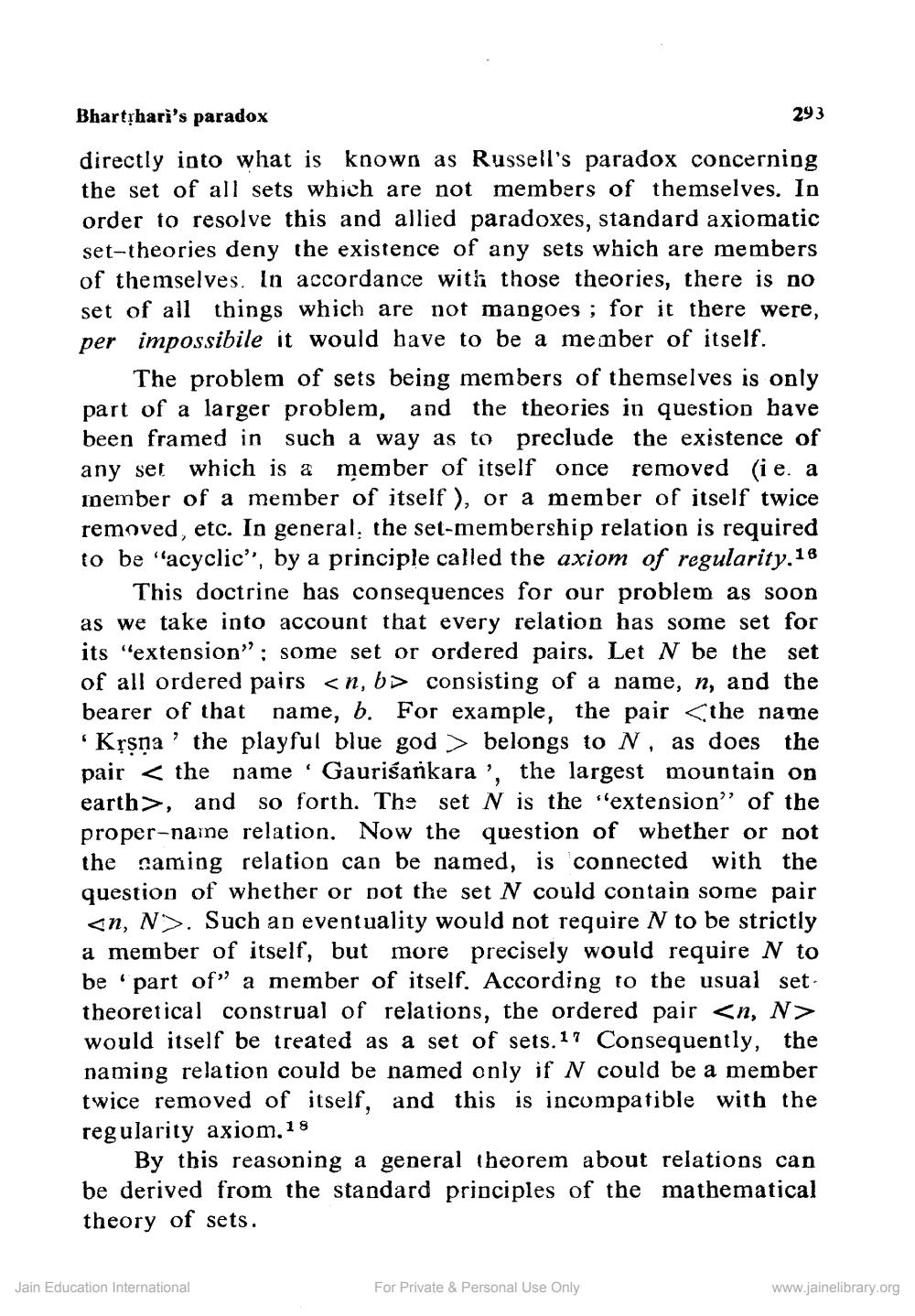________________
Bhart;hari's paradox
293
directly into what is known as Russell's paradox concerning the set of all sets which are not members of themselves. In order to resolve this and allied paradoxes, standard axiomatic set-theories deny the existence of any sets which are members of themselves. In accordance with those theories, there is no set of all things which are not mangoes ; for it there were, per impossibile it would have to be a member of itself. The problem of sets being members of themselves is only
a larger problem, and the theories in question have been framed in such a way as to preclude the existence of any set which is a member of itself once removed (i e. a inember of a member of itself ), or a member of itself twice removed, etc. In general, the set-membership relation is required to be 'acyclic”, by a principle called the axiom of regularity.18
This doctrine has consequences for our problem as soon as we take into account that every relation has some set for its "extension”; some set or ordered pairs. Let N be the set of all ordered pairs <n, b> consisting of a name, n, and the bearer of that name, b. For example, the pair <the name
Krsna’ the playful blue god > belongs to N, as does the pair < the name 'Gaurisankara ', the largest mountain on earth>, and so forth. The set N is the "extension of the proper-naine relation. Now the question of whether or not the gaming relation can be named, is connected with the question of whether or not the set N could contain some pair <n, N>. Such an eventuality would not require N to be strictly a member of itself, but more precisely would require N to be part of” a member of itself. According to the usual set. theoretical construal of relations, the ordered pair <n, N> would itself be treated as a set of sets. 17 Consequently, the naming relation could be named only if N could be a member twice removed of itself, and this is incompatible with the regularity axiom. 18
By this reasoning a general theorem about relations can be derived from the standard principles of the mathematical theory of sets.
Jain Education International
For Private & Personal Use Only
www.jainelibrary.org




